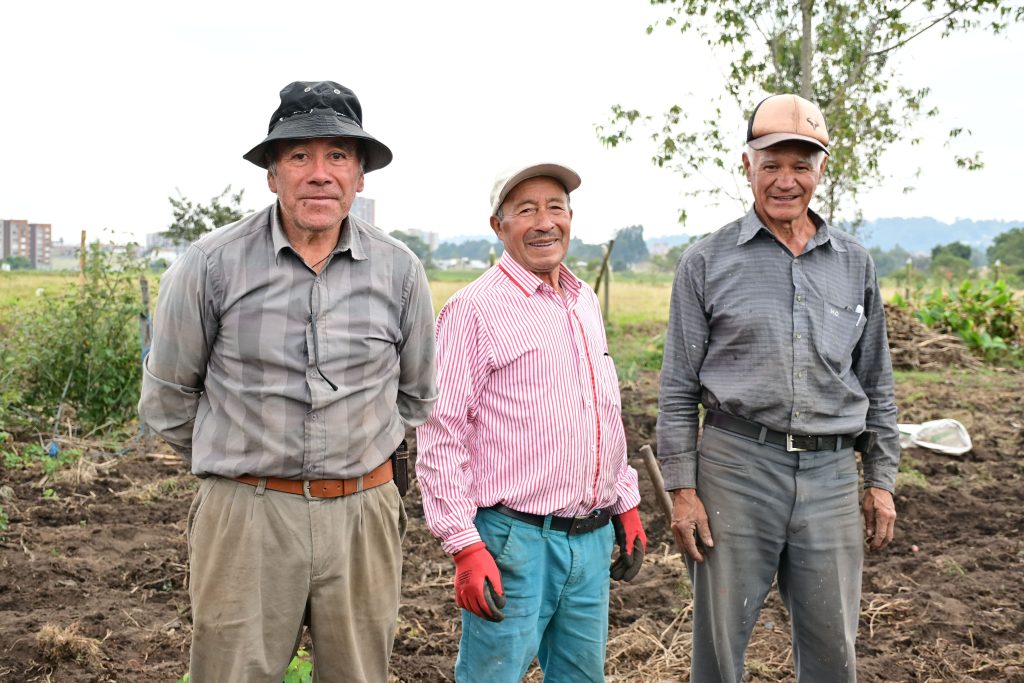Wayra is an educational project of the Faculty of Physical Education of the Universidad Pedagógica Nacional. It was born in 2008 to combine a proposal open to the public, the university community, people from the surrounding neighborhoods, but also members of institutions who want to live the experience of approaching diverse types of crops, combining agriculture, environment, recreation, and leisure.
Students can join the project through an academic elective for all programs and through a free engagement whenever they want to participate, learn to work the land, or talk to those who work there. “It is a space in the city that allows us to be in contact with nature and the land. We work on the premise that we sow and consume before we sell,” explains Katherine Aldana Villalobos, Professor at the Faculty of Physical Education, who participates in the initiative.
In 2016, Juvenal Jaimes began participating in Wayra, answering the call of the Universidad Pedagógica Nacional, and since then he has planted corn, potatoes and plants in this space, explaining to each of the students who visit this garden everything related to working the land: “I’m from the countryside, I’m a farmer. I think, it is particularly good that these opportunities are opening up in the city, because there are already people who are interested in this topic, but they do not know anything about it, although it’s a reality that nowadays young people care very little about the land,” he said.
In turn, Gratiniano Jiménez Moreno, a farmer who dedicates a great deal of his time to the work of Wayra, spoke about the future of this project: “The future is very good for us, for those who work on it. Here we are sowing everything they tell us. It is our wish that everything in this land is good.”
The pedagogical dimension is crucial in this model implemented in the Valmaría facilities of our teacher training institution, since the students learn to sow from scratch thanks to the older adults in the area. Natalia Nivia, an agronomist who provides technical assistance in the garden, explains that this place has great agricultural potential in terms of water and soil, and that these small steps taken in the city are crucial to stimulate young people’s interest in the countryside. The UPN, as the home of teachers, continues to support these types of initiatives that value and rescue distinct types of knowledge and promote different practices of Colombia’s future educators.
